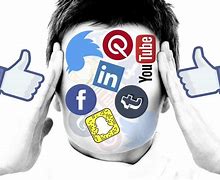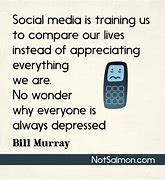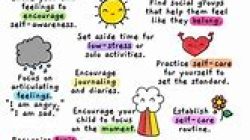
Okay, here’s a catchy intro paragraph for your article about social media ruining mental health:
The constant scrolling, the curated perfection, the endless comparison – is social media really ruining our mental health? It’s a question that’s buzzing louder than ever, and for good reason. While social media offers a powerful platform for connection, the same platform can be a breeding ground for anxieties, insecurities, and a distorted view of reality. We’re bombarded with seemingly perfect lives, unattainable beauty standards, and the constant pressure to “keep up”. The reality is that this constant exposure to “highlight reels” can fuel feelings of inadequacy, loneliness, and depression. It’s not just about the content we consume; it’s also the way social media is designed, intentionally capturing our attention with notifications and algorithms that keep us hooked. So, while it’s undeniable that social media can offer immense benefits, we must also recognize its potential dangers. We need to be mindful of the way it impacts our mental well-being. This article dives deep into the social media paradox – exploring both the positive and negative impacts on mental health, and how to navigate this complex landscape for a healthier digital experience.
Let me know if you need anything else! 😊
Social Media and Mental Health: Is It Really Ruining Our Lives?
Introduction: The Rise of Social Media and Its Impact on Mental Health
Related Post : mental health counseling software
Social media has become an integral part of our lives, transforming the way we communicate, consume information, and connect with others. Platforms like Facebook, Instagram, Twitter, and TikTok have revolutionized the way we interact, providing us with unparalleled access to information, entertainment, and a sense of community.
While social media offers numerous benefits, including connecting with loved ones, accessing valuable information, and building online communities, there’s a growing concern about its potential negative impacts on mental health. This article delves into the dark side of social media, exploring how it can contribute to feelings of inadequacy, anxiety, and depression. We’ll examine the key issues, such as social comparison, cyberbullying, and the constant pressure to be “on,” and offer strategies for managing social media use and protecting your mental well-being.
The Dark Side of Social Media: How It Affects Our Mental Health
Social Comparison and Body Image: Social media often presents a curated and idealized version of reality. People tend to showcase their optimal moments, achievements, and appearances, creating a sense of unattainable perfection. This can lead to social comparison, where individuals compare themselves to others and feel inadequate, envious, and insecure.
The relentless exposure to seemingly perfect lives can negatively affect body image and self-esteem, especially among young people. Social media’s emphasis on physical attractiveness and the prevalence of unrealistic beauty standards can contribute to eating disorders and body dysmorphic disorder.
Cyberbullying and Online Harassment: Unfortunately, social media platforms can also become breeding grounds for cyberbullying and online harassment. Anonymous profiles and the ease of spreading negativity can create a toxic environment where individuals feel empowered to bully and harass others without fear of consequence.
Cyberbullying can have devastating psychological effects, including anxiety, depression, low self-esteem, and suicidal thoughts. Social media algorithms can even amplify negativity, promoting text that aligns with users’ existing biases and potentially exacerbating bullying situations.
Fear of Missing Out (FOMO) and Constant Connectivity: The constant bombardment of notifications, updates, and curated text on social media can create a sense of FOMO, a persistent feeling of missing out on experiences and opportunities. This pressure to be constantly “on” and present online can lead to anxiety, stress, and a sense of inadequacy.
The constant connectivity fostered by social media can disrupt sleep patterns, distract from work and studies, and hinder real-life social interactions. It can also contribute to a sense of isolation and loneliness, as people prioritize online interactions over face-to-face connections.
Signs of Social Media Addiction: Recognizing When It’s Time to Disconnect
Social media, like any other addictive behavior, can become a problem when it starts to interfere with daily life and well-being. Here are some signs that you might be spending too much time on social media:
Excessive Social Media Use:
- Spending an inordinate amount of time on social media platforms, neglecting other crucial facets of life, such as work, school, or relationships.
- Feeling restless or anxious when unable to access social media.
Withdrawal Symptoms:
- Experiencing mood swings or irritability when not using social media.
- Feeling the need to constantly check social media notifications.
- Difficulty concentrating or focusing on tasks due to social media distractions.
Negative Impact on Relationships and Social Interactions:
- Isolating oneself from real-life interactions in favor of online social media.
- Avoiding social situations due to anxiety or fear of missing out.
- Experiencing difficulties forming and maintaining relationships.
Strategies for Managing Social Media Use and Protecting Mental Health
If you’re concerned about the impact of social media on your mental health, there are steps you can take to manage your use and cultivate healthier digital habits.
Mindful Social Media Consumption:
- Be aware of the time spent on social media and set limits. Utilize built-in attributes like time limits or app blockers to control your application.
- Unfollow or mute accounts that contribute to negative feelings. Surround yourself with positive and inspiring text.
- Engage with text that promotes positivity and well-being. Seek out accounts that offer encouragement, support, and mental health resources.
Cultivating Real-Life Connections:
- Prioritize face-to-face interactions with friends and family. Make time for meaningful conversations and shared experiences.
- Engage in hobbies and activities that bring joy and fulfillment. Explore your interests and pursue activities that bring you happiness.
- Seek professional help if needed to address social anxiety or other mental health concerns. Therapists can offer support and guidance in managing your relationship with social media and navigating mental health challenges.
Developing Healthy Digital Habits:
- Take breaks from social media and engage in offline activities. Disconnect from your devices and immerse yourself in the physical world.
- Use social media for positive and meaningful interactions. Focus on connecting with loved ones, sharing experiences, and building supportive communities.
- Seek support and guidance from trusted friends, family, or therapists. Talk to people you trust about your concerns and seek their advice.
Conclusion: The Future of Social Media and Mental Health
Social media has become an indispensable tool for communication, information, and entertainment. However, it’s crucial to recognize its potential negative impacts on mental health. By understanding the risks associated with social comparison, cyberbullying, and FOMO, we can cultivate healthier digital habits, prioritize real-life connections, and protect our well-being.
Social media platforms also have a responsibility to promote responsible use and protect user well-being. They should implement measures to combat cyberbullying, promote mental health awareness, and encourage users to develop balanced relationships with technology. Ultimately, the future of social media and mental health lies in fostering a balanced approach, where technology complements our lives without dominating them, and where real-life connections continue to be valued and prioritized.






